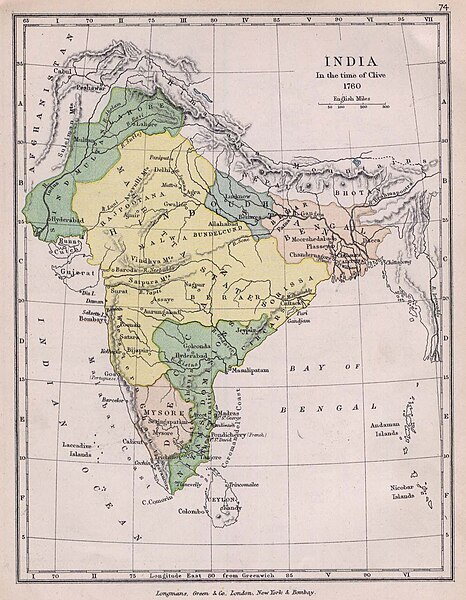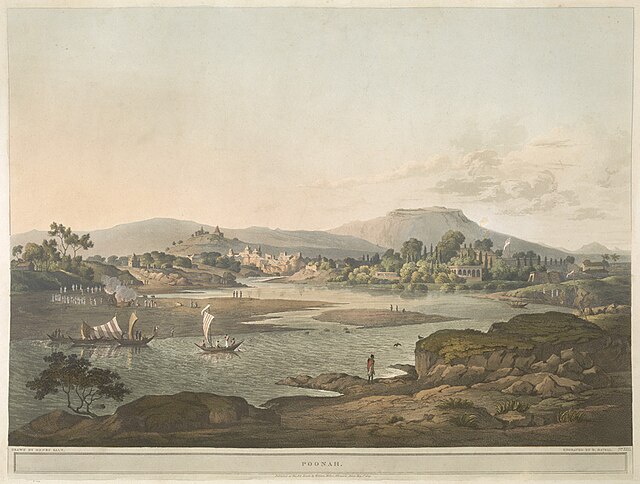Sant Tukaram Maharaj, also known as Tuka, Tukobaraya, Tukoba, was a Hindu, Marathi Saint of "Varkari sampradaya" in Dehu village, Maharashtra in the 17th century. He was a bhakt of Lord Pandurang of Pandharpur. He is best known for his devotional poetry called Abhanga, which are popular in Maharashtra, many of his poems deals with social reform.
Sant Tukaram Maharaj
Tukaram is said to have left for Vaikuntha, abode of Vishnu (identified with Vithoba) at the end of his earthly life.
Mural of the god Vithoba with Varkari sants; Tukaram sits on the right arm.
Commemorative Indian stamp depicting Tukaram (2002)
The Marathi people or Marathis are an Indo-Aryan ethnolinguistic group who are native to Maharashtra in western India. They natively speak Marathi, an Indo-Aryan language. Maharashtra was formed as a Marathi-speaking state of India on May 1, 1960, as part of a nationwide linguistic reorganisation of the Indian states. The term "Maratha" is generally used by historians to refer to all Marathi-speaking peoples, irrespective of their caste; However, it may refer to a Maharashtrian caste known as the Maratha.
Territory under Maratha control in 1760 (yellow), with its vassals
A watercolor painting of Pune from the late Peshwa era as seen from the confluence of the Mula and Mutha rivers, by British artist Henry Salt. The picture clearly shows the permanent features of the place and cremations. River confluences have been popular in Hinduism for cremations and also for ceremonial disposal of ashes
B. R. Ambedkar, a polymath and Social reformer
Sayajirao Gaekwad III, the Maratha Maharaja of Baroda








